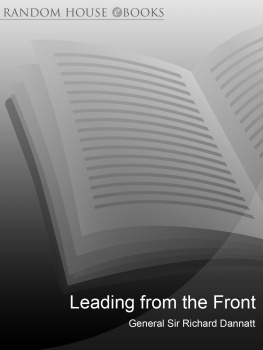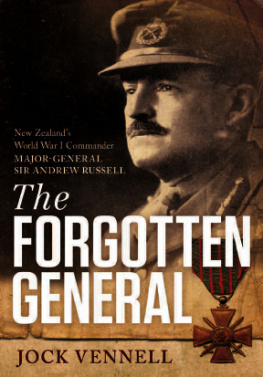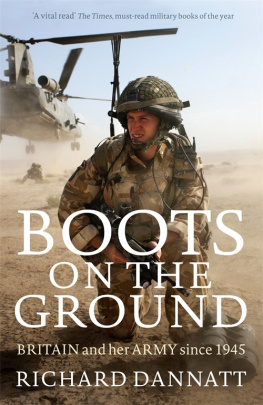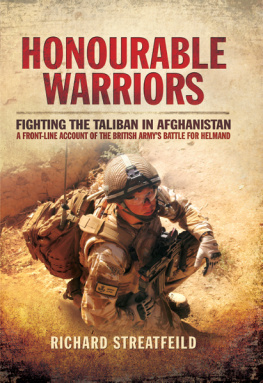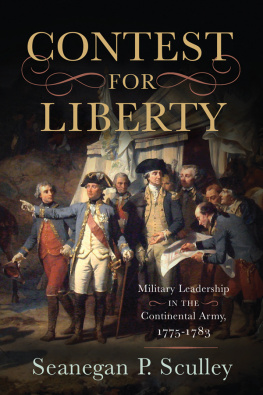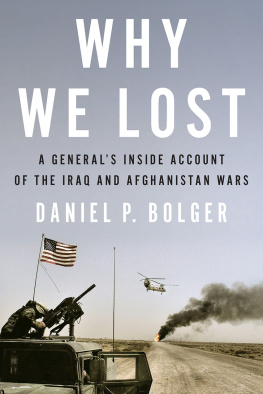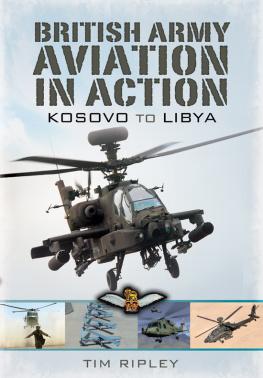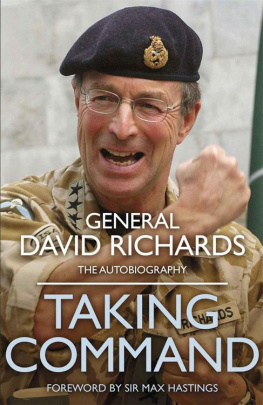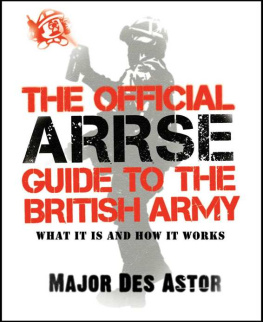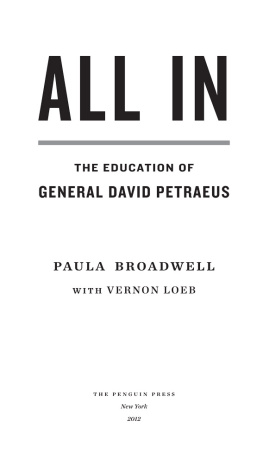About the Book
General Sir Richard Dannatts distinguished career in the army has spanned thirty-eight years and seen him serve many different theatres of conflict, from Northern Ireland (where he was awarded the Military Cross) to Bosnia and Kosovo, Iraq and Afghanistan. His experiences have forged an unwavering loyalty to the fighting British soldier.
As Chief of the General Staff, he was given overall command of the British army at a time when the fighting was fiercest in Afghanistan. But from his very first day in the job, General Dannatt proved himself a courageous leader and a forceful advocate for his men, never shying from controversy to tell the truth as he found it.
More than any leader in recent times, Dannatt has used his position of command to get a better deal for the British soldier the right equipment, the right conditions, the right reward to do the job we ask of them. His leadership and example have shaped the debate about the role of the professional army in modern warfare.
Leading from the Front is General Sir Richard Dannatts reflections on a life of military service which offers a characteristically frank analysis of whether Britains defence strategy is fit to deal with the numerous threats we will face in the 21st century.
Contents
LEADING FROM THE FRONT
The Autobiography
GENERAL SIR RICHARD DANNATT
This book is dedicated to my own amazing family and all our incredible military families everywhere. Thank you.
Acknowledgements
This book would not have been written had it not been for the inspiration, encouragement and support of my family, in particular my children Tom, Bertie, Olly and Richenda. Pippa and I were sceptical about whether or not I should write a book about my military career, but the children were adamant that I should. Their insistent view was that so much had happened since 9/11 in particular that, as someone who had been closely involved with many of the key issues in defence in the decade that followed, I had a duty to record my account of those years and to offer my perspective on events. Having acceded to their point of view, I came to appreciate that my views on recent events were fully understandable only when seen in the context of my full career and early life and so this book became also a personal autobiography and a record of my wider views on military matters past, present and future.
So I would like to record my sincere thanks to all my family Pippa, my wife, who has followed the drum through thick and thin, brought up our children almost single-handed and saved me from myself more times than I care to recall; Tom, Bertie, Olly and Richenda, my children, who have come on the journey with me; Lucinda and Emma, my two daughters-in-law, who are both a great joy to our family; and the next generation, my two grandsons Arthur and Freddie, into whose hands the future will fall. Without the love and support of all my family, nothing that I have attempted would have been possible.
I would also like to place on record my thanks for the professional and personal support given to me, and to Pippa where appropriate, by those officers and noncommissioned officers who have worked closely with me. Senior officers are supported by military assistants and aides de camp, of which I have had a splendid and talented team. I would like to thank my military assistants from 2001 to 2009, Lieutenant Colonels David Cullen, Andrew Hughes, Chris Ryder, John Patterson, Felix Gedney, Ian Gibb, Edward Chamberlain, Harry Holt, Alistair Aitken and Simon Gilderson, and Majors Ben Cattemole and Ben Wilde, for their wise professional counsel and good humour. I would also like to acknowledge my succession of aides de camp from 1999 to 2009, Captains Toby Greville, Zac Stenning, Philip Searle, Justin Hunt-Davies, Nick Thom, Ollie Pile, Rupert Thomas, James Rob, Toby Glover and James Ashworth. Having re-learnt how to manage my own affairs over the last year, I am hugely grateful for the way that they all ran my diary, fixed everything and tolerated my periodic moments of grumpiness or changes of mind saints one and all! I am also most grateful to those who have driven me, made sure I appeared in the right uniform or helped me look after our official guests: these include Colour Sergeant Steve Crighton MBE, Colour Sergeant Paul Simpson MBE, Sergeant Mac McClennan, Sergeant Bernie Allsopp and Corporal Mal Franks.
Although I take full responsibility for every word and photograph in this book and any mistakes or errors are entirely mine I would wish to thank very warmly all those who have assisted in its publication. In particular I wish to thank my agent, Charlie Viney, not only for his huge help in getting this project off the ground, but for his persistence through the months when I was adamant that I was not going to write a book. His perseverance paid off to the benefit of all. I would like to thank my publisher, Bill Scott-Kerr of Transworld, for putting together a thoroughly professional and pragmatic team who have let me plough my own furrow with only gentle pulls on the reins, in particular Simon Thorogood, editorial director; Gillian Somerscales, copy-editor; Sheila Lee, picture editor; Patsy Irwin, who masterminded the publicity for the book; Helen Edwards, who secured the serialization; and Zoe Willis, who oversaw the audio version.
Having already accepted full responsibility for the final product, I would nevertheless wish to record my gratitude to those who read and commented on the text: Martin Bell, Tom and Lucinda Dannatt, Charles and Tricia Marnham, John Powell, and John and Fee Sharples. I would also like to thank Nick Gurr and Andrew Jackson for securing safe passage of the text through the Ministry of Defence, ensuring that the Official Secrets Act had not been breached inadvertently, and Lloyd Clark and Rob Lyman for assisting me in the production of some of the text from my notes, and for their research and encouragement. I am also grateful to Patrick Sanders and Anna Crowther for their detailed research in the latter part of the book. Finally, I would like to thank Professor Richard Holmes for his very generous Foreword. I hesitated to ask this most accomplished and busy of men to undertake this task, but after many years of professional and personal acquaintance I could think of no one better. I fear that he has over-sold what is to come.
Keswick, Norfolk
July 2010
Foreword
This is a timely book. There has scarcely been a moment in the Armys long history when soldiers, serving or retired, have constituted so small a proportion of our nations population. For all the reportage of fighting in Iraq and now Afghanistan we have rarely understood less about the young men and, increasingly, young women too who do what Richard Dannatt calls most of the heavy lifting, the fighting and the dying in the wars that have come to characterize our age. On the one hand, it is encouraging to see how Help for Heroes has touched a resonant chord of national gratitude; how the unofficial ceremonies in the Wiltshire town of Wootton Bassett represent respect and gratitude for service personnel who have paid the ultimate price; and how units returning from their tours of duty now march with pride through their home towns. But on the other, we have been paying private soldiers less than traffic wardens, routinely saving money in an overstretched defence budget by postponing long-overdue repairs to military accommodation, and being shamefully laggardly in ensuring that the families of the seriously wounded do not have to scramble for bed and breakfast accommodation to be close to their loved ones in hospital. We have been sapping our Armys willingness to serve in a dangerous world where operational tours run on thick and fast, essential equipment is too often lacking and there are rarely enough helicopters.

